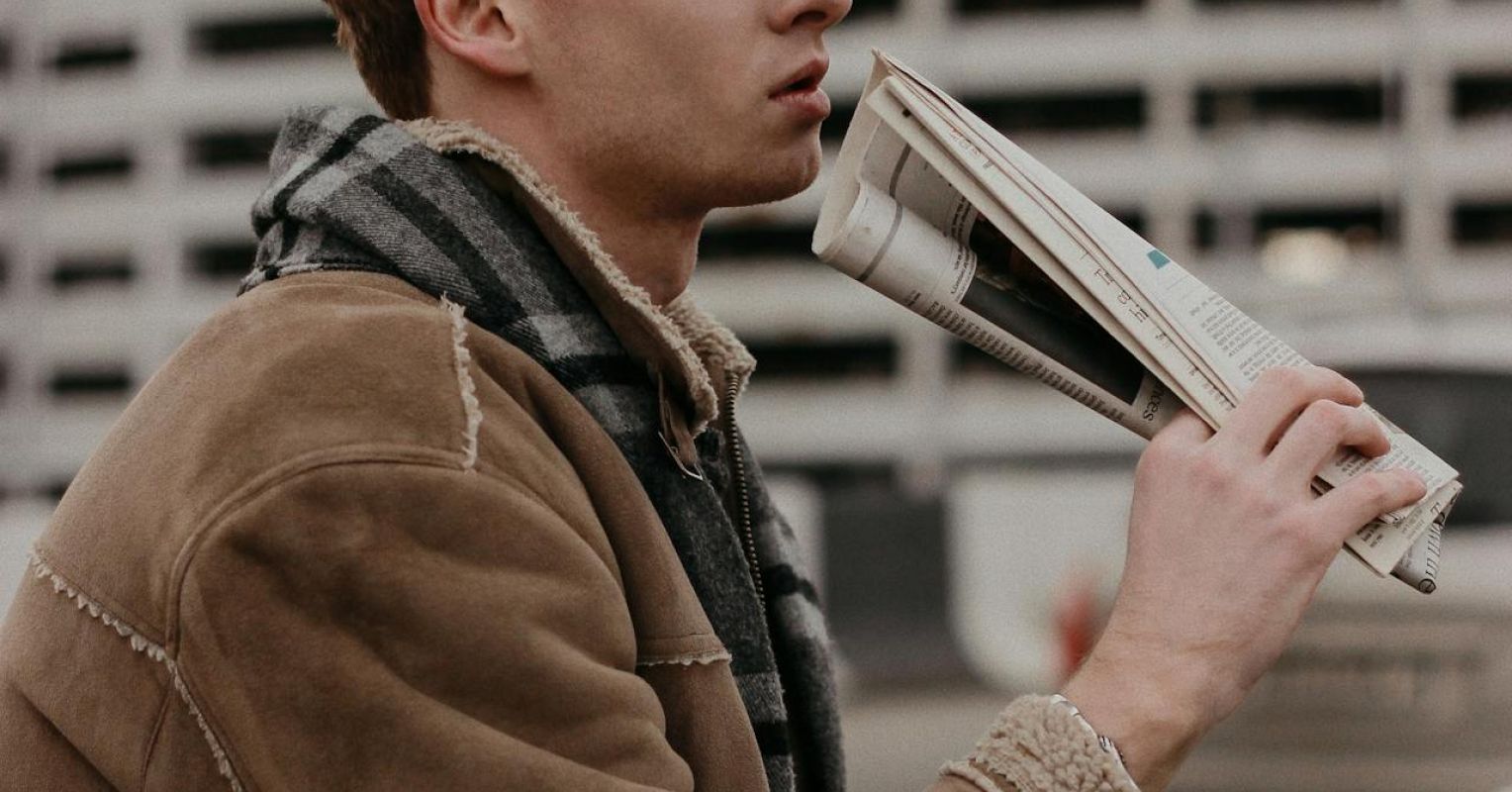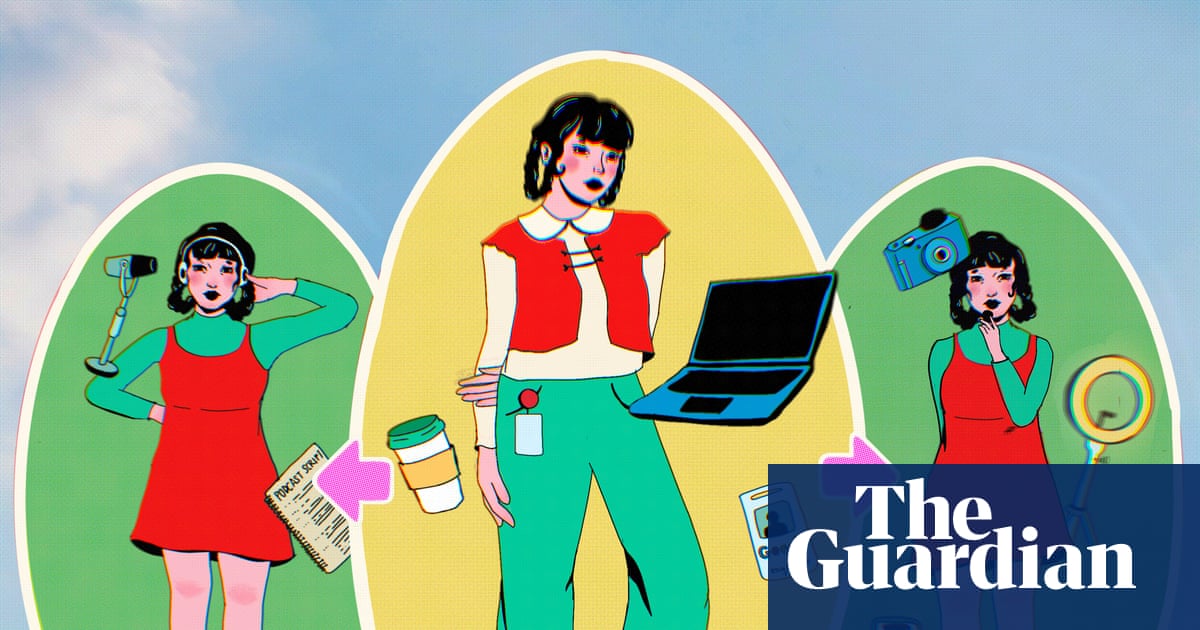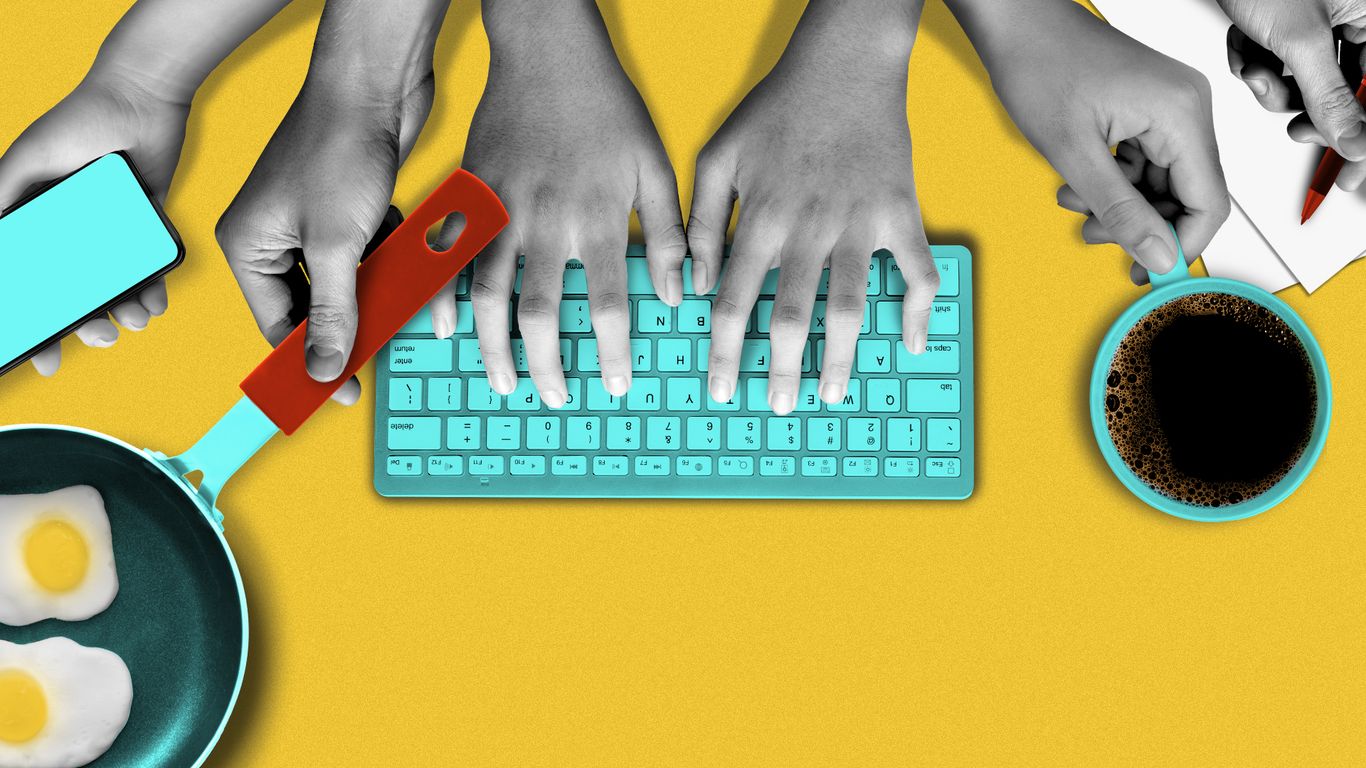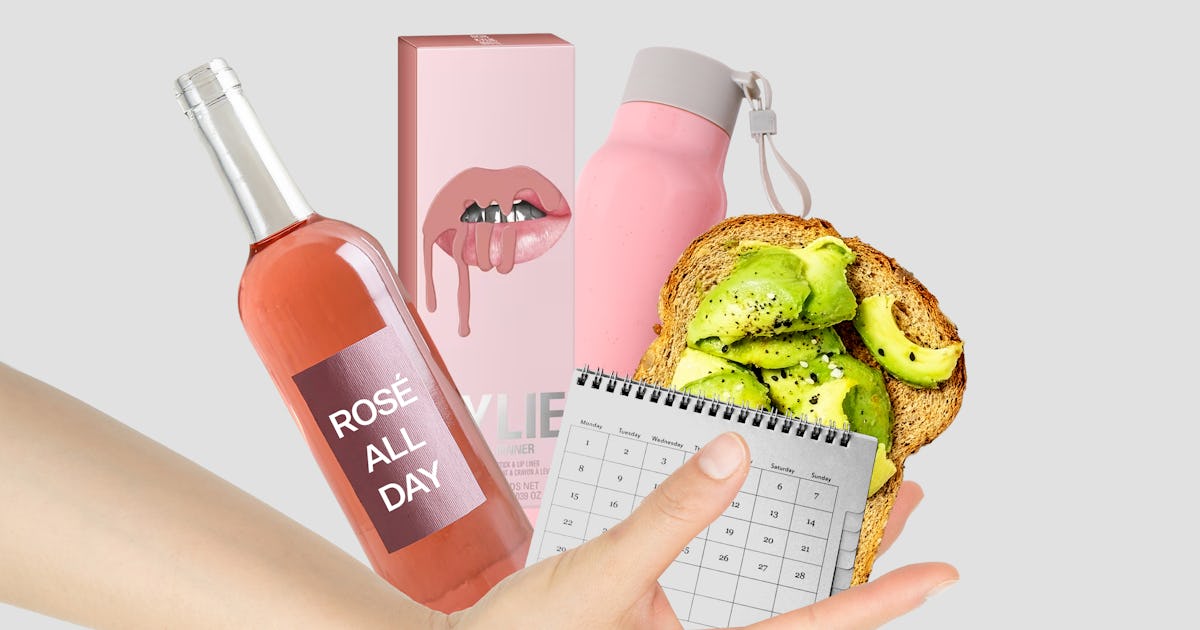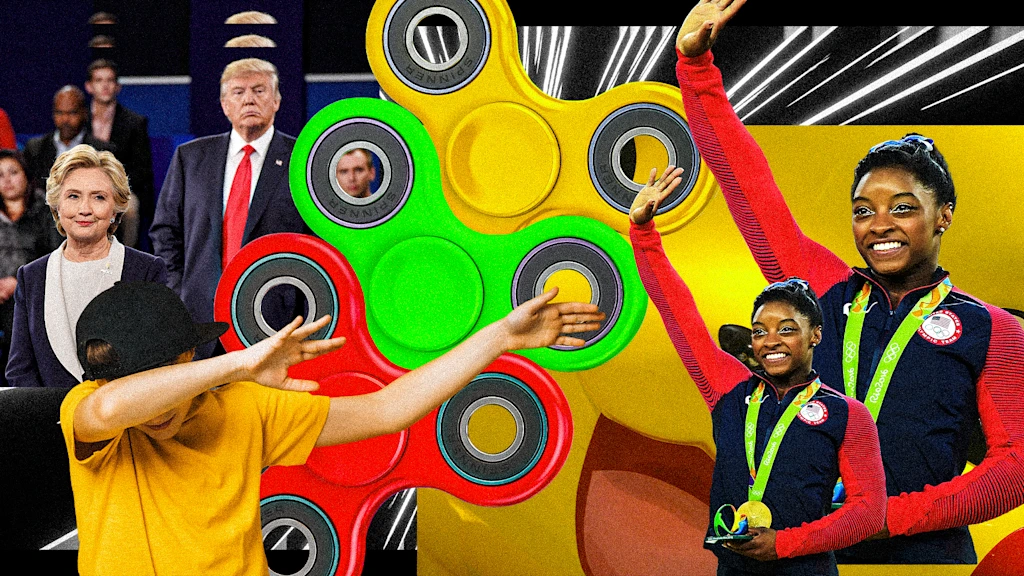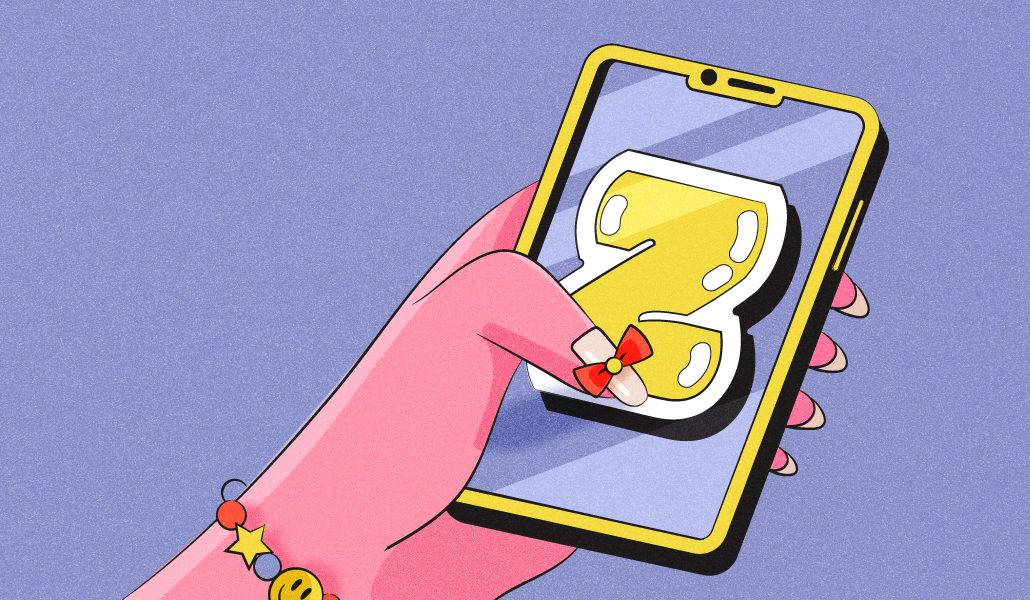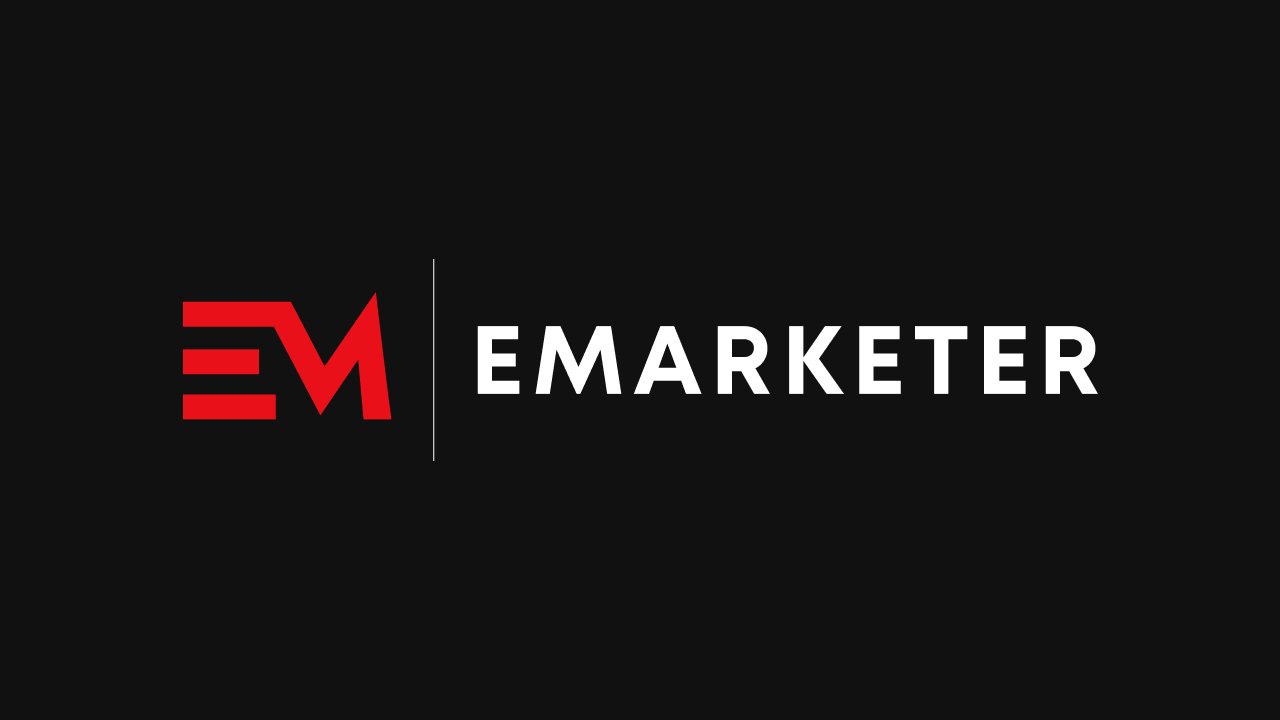#gen-z
#gen-z
[ follow ]
#nostalgia #social-media #digital-detox #tiktok #creator-economy #dating-trends #work-life-balance #ai-adoption
Gadgets
fromYanko Design - Modern Industrial Design News
3 days ago5 Tiny Products Gen Z Uses That Actually Replace Your Biggest Tech - Yanko Design
Gen Z pioneers tech minimalism by choosing compact, multifunctional, and stylish devices that reduce clutter while balancing power, portability, sustainability, and nostalgia.
fromBusiness Insider
3 days agoWe're witnessing the most Gen Z Olympics yet
Can you remember the last time a bronze medalist became the big story out of an Olympic event? Here's one for you: During his post-race interview, Norway's Sturla Holm Lægreid didn't talk about the run he'd completed, which earned him the bronze medal in men's biathlon. Instead, he chose to tell the world about how he cheated on his ex-girlfriend.
World news
fromABC News
5 days agoSports leagues race to capture Gen Z and Gen Alpha with AI, influencers and Italian brainrot
I go to YouTube with Snapchat, or Google something if I just have an idea that I want to know," Tye McOmber said while sitting next to his father at a recent Blackhawks game.
Online marketing
Fashion & style
fromFortune
6 days agoVictoria's Secret CEO says Gen Z didn't grow up with 2000s body image baggage-and they're embracing the glamorous fashion show again | Fortune
Victoria's Secret revived its glittering runway to appeal to Gen Z through inclusive casting, celebration of glamour, and a retail transformation led by CEO Super.
fromFast Company
6 days agoHow leaders at major consumer brands keep current with Gen Z
I recently celebrated my 56th birthday, and I'm feeling my age. Not because I'm slowing down (which I am), but because I feel increasingly removed from the passions, peeves, and predilections of Gen Z and Generation Alpha. This matters, as young people shape popular and workplace cultures, and their tastes drive big swaths of consumer and tech spending-all things Inc. and Fast Company cover.
Marketing
Digital life
fromwww.cnbc.com
1 week agoA 'quiet revolution': How young people are swapping social media with lunch dates, vinyl records and brick phones
Many Gen Z and millennials are deleting social media, embracing offline and analog hobbies, and prioritizing in-person connections to reduce digital burnout and improve well-being.
Running
fromFortune
1 week agoGen Z's latest status symbol is running a marathon-and it's terrible news for Gucci, Louis Vuitton, and Hermes | Fortune
Gen Z prioritizes affordable fitness culture and sneakers over high-cost luxury handbags, seeking community, status, and attainable experiences rather than expensive goods.
fromPsychology Today
1 week agoA New Form of Activism: Getting Off Social Media
Are people turning away from social media? But that tide might be finally, yet slowly, turning. My Gen Z students have recently been the ones telling me about social media "cleanses", whereby they take a break from it all for a prescribed duration, and "grayscaling" their socials (whereby color images turn to black and white, making them less eye-candy-esque-and all around having better cellphone etiquette such as putting it away during class and turning it off at night.
Mental health
fromEMARKETER
1 week agoYoung adults are choosing to read the news, not watch it
This text-first preference aligns with how young adults consume content overall. Gen Z spends 58% of their video time on social media rather than streaming services, according to Deloitte, favoring short-form, scrollable formats over lean-back viewing. Young consumers also bring a research-driven mindset to information gathering. Nearly 90% cross-check results across multiple platforms before making decisions, according to Yext, suggesting they're comfortable synthesizing text from multiple sources rather than relying on a single video explainer.
Media industry
fromMail Online
1 week agoExpert reveals the least intelligent generation in history
Dr Jared Cooney Horvath, a former teacher-turned-neuroscientist, revealed that the generation born between 1997 and the early 2010s has been cognitively stunted by their over-reliance on digital technology in school. Since records have been kept on cognitive development in the late 1800s, Gen Z is now officially the first group to ever score lower than the generation before them, declining in attention, memory, reading and math skills, problem-solving abilities, and overall IQ.
Education
fromwww.npr.org
1 week agoMeet Milo and Tina, the 'first openly Gen Z' Olympic mascots
Our stoats are two cheerful and easy-going teenagers, energetic, determined and strong-willed, sometimes charmingly irreverent towards adults and eager to assert their role as protagonists in the world to come,
Miscellaneous
Venture
fromFortune
2 weeks agoCEO of $1.25 billion AI company says he hires Gen Z because they're 'less biased' than older generations-too much knowledge is actually bad, he warns | Fortune
Prioritize character, grit, and fresh-minded Gen Z perspectives over experience in tech, especially as generative AI reduces reliance on prior knowledge.
fromAxios
2 weeks agoGen Z is surprisingly optimistic about career prospects: Survey
"It's not that Gen Z has confidence necessarily in the market, but they do have a confidence in their ability to adapt," Kyle M.K., Indeed's senior strategy advisor, tells Axios. "This is a group that - for a majority of their lives - they've seen a lot of disruption." "They just have a lot of confidence in themselves to plan accordingly," he adds, "especially as we go through some of this transformative change that we're seeing with AI and the economy."
Business
Music
fromwww.theguardian.com
2 weeks agoAnti-pop and an alien sigil: how Aphex Twin overtook Taylor Swift to become the soundtrack to gen Z life online
Aphex Twin's obscure tracks, led by QKThr, have surged in popularity among Gen Z on short-form platforms, driving a back-catalogue renaissance and major streaming gains.
Law
fromFortune
2 weeks agoLaw school admissions expert sees 'dangerous one-two punch' as Gen Z seeks shelter from the AI hiring storm in 6-figure debt and JD lifeboat | Fortune
Law school applications surged over 40% as Gen Z seeks shelter from a weak job market; employment rates are high now but oversupply risks loom.
fromFortune
3 weeks agoMatch Group says a 'readiness paradox' is crippling Gen Z in dating: Fear of hard-launching on Instagram is making it worse | Fortune
In fact, their survey results from 2,500 randomly selected U.S. adults shows 80% of Gen Z say they believe they'll find true love, making them the most optimistic generation about finding love. Yet, only 55% of Gen Z feel like they're actually ready for partnership. Therein lies the "readiness paradox," a phenomenon that paralyzes Gen Z from taking that initial step toward a serious relationship, and subsequently toward marriage and having children.
Relationships
Careers
fromSlate Magazine
3 weeks agoThe Hiring Market Is Truly Terrible Right Now. Job Seekers Are Starting to Do Something Unthinkable to Get Hired.
Modern hiring is highly competitive, biased by A.I. and demographics, and increasingly shifts costs to applicants while reducing entry-level opportunities.
Silicon Valley
fromFortune
1 month agoJensen Huang tells Stanford students their high expectations may make it hard for them to succeed: 'I wish upon you ample doses of pain and suffering' | Fortune
Privileged Gen Z graduates should lower expectations to build resilience, because low expectations can foster persistence and improve long-term chances of success.
fromFortune
1 month agoGen Z's pursuit of the #RichTok lifestyle sends them to social media for investing advice | Fortune
Gen Z loves #RichTok - and they love being rich. Mash them together and you get a generation that overwhelmingly turns to social media for investing advice as they seek the most elusive thing of all for the young: financial independence. Social media ranked the top reason 55% of Gen Z and 44% of millennial investors say they got into investing, according to a survey of 300,000 investors over five years by the Oliver Wyman Forum.
Social media marketing
fromFast Company
1 month agoIkea will team up with Roblox on a pop-up to reach Gen Alpha shoppers
"Ikea wanted to better understand how Gen Z and Gen Alpha think about furnishing and self-expression, recognizing the need to meet them on platforms they already use and learn from how they interact with products and spaces in a digital environment,"
E-Commerce
fromVogue
1 month agoWhy Luxury Is Getting Back Into Gaming
On Monday, Coach launched a collection within The Sims 4, marking the first time a fashion brand has partnered with the video game in five years. All players will be able to access the new collection, which is free and features customizable items from Coach's ready-to-wear line, including its Tabby and Brooklyn bags, as well as decorative objects that can be used to craft Coach-inspired interiors through the game's build mode.
Fashion & style
Education
fromFortune
1 month agoEchoing the Great Recession, Gen Z graduates are pouring into education, with Teach For America reporting a 43% surge | Fortune
Gen Zers are increasingly choosing teaching and blue‑collar work over elite-degree office jobs, driving a 43% rise in Teach For America incoming corps members.
fromwww.cnbc.com
1 month agoGen Z and social media are helping men's makeup go mainstream. The beauty industry is trying to capitalize
It often starts small. A dab of concealer. A tinted moisturizer. Maybe a brow gel that goes from borrowed to bought. For many men, like Daniel Rankin, makeup has transformed from something taboo into a tool to make them look less tired and more put together. "I remember thinking, 'Am I really doing this?'" Rankin, a 24-year-old advertising agent from New York who likes to shop at Sephora, told CNBC. "But once I tried it, it just became normal."
Business
fromFortune
1 month agoGen Z is rebelling against the economy with 'disillusionomics,' tackling near 6-figure debt by turning life into a giant list of income streams | Fortune
Gen Z copes with economic uncertainty through high discretionary spending and heavy debt, reflecting rejection of traditional financial expectations and internalized commodification.
Careers
fromFortune
1 month agoDespite getting flak for being woke and lazy, an exec at $62 billion giant Colgate says Gen Z workers are actually 'pushing us to get better' | Fortune
Gen Z employees are ambitious, highly tech-savvy, and prompting companies like Colgate to restructure leadership channels to capture their ideas.
fromFast Company
1 month agoThe Gen Z puzzle: How small businesses can crack the code
Gen Z is aging into the life moments that define entire industries. As this generation moves through milestones like marriage, homeownership, and family planning, they're quickly becoming a core target market not just for weddings, but for a wide range of service-based businesses. What matters for these small businesses is how Gen Z's arrival, set against today's economic backdrop, is reshaping expectations for how they serve their customers.
Marketing
fromFast Company
1 month agoGen Z: Connection over consumption
Every January, we're bombarded with resolutions rooted in consumption-buy this, try that, subscribe to something new. For Gen Z, this consumer-first vision of the New Year feels outdated and hollow. Instead, Gen Z is turning to peers for a community-driven "soft start" to the year ahead. Popularized on TikTok, January resets offer a modern alternative to the outdated idea of resolutions. This shift from consumer-driven goals to community-supported resets is especially visible in how Gen Z is approaching health and wellness in 2026.
Public health
Arts
fromThe Art Newspaper - International art news and events
1 month agoComment | Is the Catholic Church catching the eye of Gen Z with the power of the image?
Younger UK demographics are increasingly attending church, with a notable shift toward Catholicism influenced in part by church art and aesthetics.
fromThe Drum
1 month agoA marketer's guide to modern media consumption by age group
1. Outdated media mix models offered by major consulting houses weight older media forms like broadcast and cable more than new forms of media or ignore them completely. 2. Media fragmentation has muddied the marketplace with hundreds of new channels. 3. New media forms don't have or haven't built platforms allowing advertising at scale. 4. Bureaucracy. Large marketing organizations are slow movers, despite audiences moving elsewhere. 5. Change is hard. Lazy marketers stick to what has worked in the past, ignoring audience shifts.
Marketing
fromBusiness Insider
1 month agoGen Z-ers are taking to Pinterest to find their vibe
For millennials, if you ask them what their styles or preferences were, you'd get a cheerleader or an athlete, or nerdy or gothic - you had sort of one label that you had to fit into, Nakajima said. With our Gen Z audience, we're seeing that it's very different.
Digital life
fromwww.theguardian.com
1 month agoWhat drove gen Z protests that brought down governments and called out corruption? Five activists explain
Mass protests in Nepal and Madagascar toppled both governments this year, even when the young people at the forefront of the demonstrations were faced with heavily armed police and the threat of arrest. Many called 2025 the year of the protest although the revolution in Bangladesh in 2024 that unseated the authoritarian leader Sheikh Hasina is often credited with inspiring young people to take to the streets across parts of Asia and Africa.
World politics
fromThe Queen Zone
1 month ago12 Careers Gen Z Isn't Interested In Pursuing
For industries built on rigid schedules and office walls, Gen Z's flight toward flexibility isn't just a trend; it's a tectonic shift that threatens to leave traditional careers gathering dust. It's no secret that Gen Z is shaking up the workforce with their unique perspective on work, life, and everything in between. From their preference for digital interactions to their demand for work-life balance, this generation is steering away from careers that once seemed stable and go-to options.
Remote teams
Silicon Valley
fromFortune
1 month agoOpenAI CEO Sam Altman says he is 'envious' of Gen Z college dropouts who have the 'mental space' and time to build new startups | Fortune
Sam Altman envies Gen Z dropouts' wide opportunity space and freedom to build startups, since OpenAI consumes his mental space.
Marketing
fromFortune
1 month agoGen Z spends hundreds a month on 'treat culture,' justifying it with the challenges of daily life-but that's a 'slippery slope,' Bank of America says | Fortune
Gen Z frequently uses small purchases as self-care and rewards, normalizing treat culture while contributing to widespread overspending.
fromFortune
1 month agoGen Z founder on 'AI anxiety' and being pigeonholed as generation shortcut: that's the 'biggest misconception' | Fortune
For Kiara Nirghin, the 24-year-old co-founder and chief technology officer of the applied AI lab Chima, the narrative that her generation uses artificial intelligence as a cheat code is not just wrong-it ignores a fundamental shift in human cognition. The Stanford computer science alum and Peter Thiel fellow argued that while older generations view AI as a tool to be adopted, Gen Z views it as a native language.
Artificial intelligence
[ Load more ]



